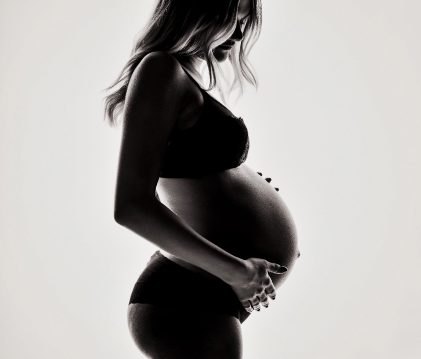Constipation is characterized by abdominal pain, difficult and infrequent bowel movements and the passage of hard stools.
Worry, anxiety, a low level of exercise, and a low-fiber diet are common causes of constipation. In rare instances, constipation is related to intestinal blockages, the excessive use of laxatives, or the use of medications that cause constipation as a side effect. Constipation in pregnancy is thought to be due to hormones that relax the intestinal muscles and by the pressure caused by the expanding uterus on the intestines. It can occur anytime but it is most common late in pregnancy.
Prevention and treatment of constipation
There are several approaches to the prevention and treatment of constipation:
Eat a high-fiber diet
Consumption of 25 to 30 grams per day of dietary fiber from fruits and vegetables, high-fiber breakfast cereals, bran, and powdered bulk-forming supplemental fiber such as psyllium or methylcellulose can prevent and relieve constipation. It is best to check out the fiber value of foods rather than make assumptions about which ones are high in fiber. Not all foods thought of as being high in fiber actually are. Because greater consumption of fiber increases your requirement for water, you will need to make sure you drink more fluids. You know you are consuming enough fiber and fluid when your stools are large and soft. Too much fiber can lead to diarrhea.
Prunes, prune juice, and figs also help relieve constipation. Although they are not particularly high in fiber, prunes and figs contain other substances that speed up elimination.
Drink 10 to 12 cups of fluid each day.
The combination of fiber and fluids is what enhances elimination, and both are necessary. Women who sweat a lot or are exposed to hot, humid climates may need more than 10-12 cups of fluid each day.
Exercise.
Inactivity fosters constipation. Walking, swimming, or other moderate exercise helps mobilize the intestines.
Cut back on iron supplements.
If you need to take iron supplementation, try taking it with fruit juice (if you do not have diabetes).
Iron supplements cause constipation in some women, especially if the dose is high (over 30 mg per day). Constipation will often improve if the amount of supplemental iron taken is reduced to smaller doses of iron, taken one at a time. Women with good iron levels and a healthy diet may not need to take iron supplements at all.
Stimulant laxatives are not routinely recommended for the treatment of constipation during pregnancy because they may stimulate uterine contractions. Mineral oil is not advised, either, because it substantially reduces nutrient absorption.
Suggested medications
Stool Softeners:
Try these first as directed. You should take these daily, not just when you feel constipated.
- Colace (docusate)
- Dialose (docusate)
- Surfak Liqui-Gels (docusate)
Bulk Producing Laxatives:
Be sure to drink an additional 8 oz. glass of water 2-3 times per day. You may use these products daily.
- Citrucel
- FiberCon
- Konsyl
- Metamucil
Stimulant Laxative & combinations: (Stool softener/stimulant)
Do not use these products for longer than one week at any given time.
- Dialose Plus Tablets
- Doxidan Liqui-Gels
- Peri-Colace
- Senokot
- Senokot-S Tablets (senna plus docusate)
- Dulcolax Tablets
- Dulcolax Rectal Suppository
- Fleets Enema
- Milk of Magnesia
CALL YOUR PROVIDER for fever, chills, vomiting, severe abdominal pain associated with constipation or no bowel movement for one week.


